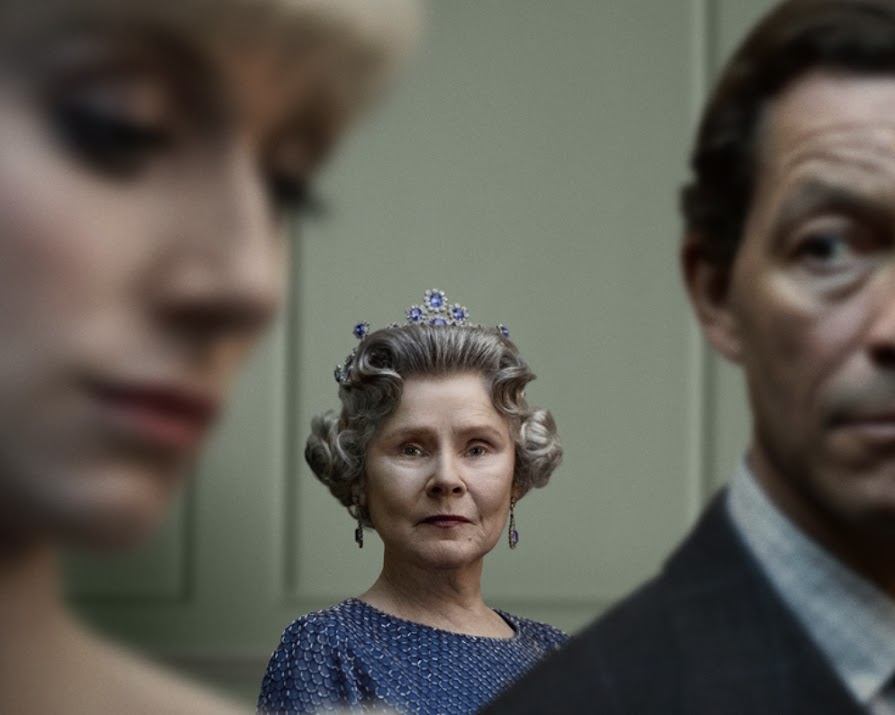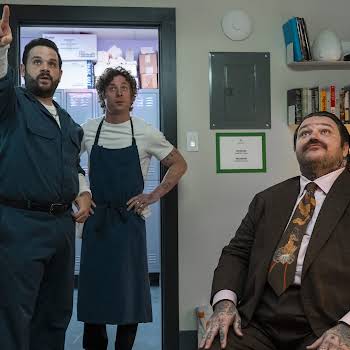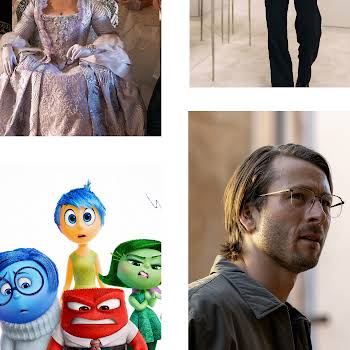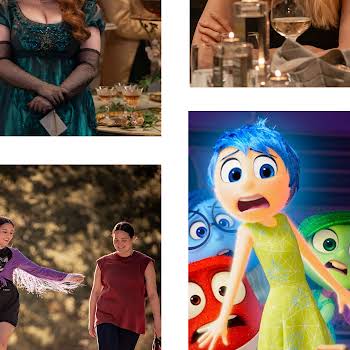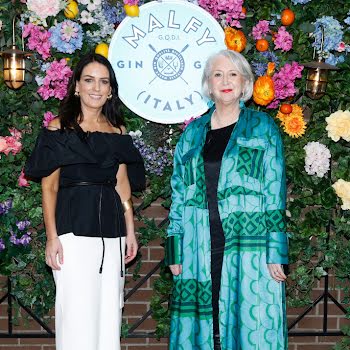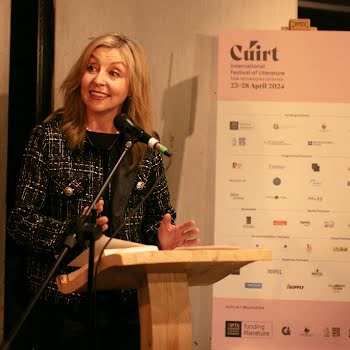Are all these new Hollywood biopics glorifying fact… or fiction?
By Sarah Finnan
09th Nov 2022
09th Nov 2022
Hollywood will have you believe that accuracy is of the utmost importance. It’s why so much of a movie’s budget goes on costuming or make-up… but it seems that accuracy isn’t always so important when it comes to casting or, you know, telling the facts.
Last year it was scammers, fraudsters and swindlers who grabbed the cultural zeitgeist. This year, it’s the ‘real-life’ biopic. From Pamela Anderson to Elvis Presley, Whitney Houston, Madonna, serial killer Jeffrey Dahmer and the illustrious Marilyn Monroe – Hollywood’s obsession with revisiting the stories of famous people has proven very popular. Even the English Royal Family have been subject to countless on-screen retellings of their history.
Here’s the problem though; we live in a post-truth era. Six years ago, The Washington Post reported that “truth is dead. Facts are passe.” Largely influenced by the state of global politics at the time (think the Brexit referendum and an equally divisive U.S. presidential election), Oxford Dictionaries selected ‘post-truth’ as their 2016 word of the year… but the phrase is just as relevant today as it was then.
Why? Because social media platforms such as TikTok, Instagram, Twitter and Meta have allowed misinformation to spread like wildfire. People are increasingly happy to accept things as fact with almost no further digging, and the latest slew of Hollywood biopics has done little to deter this tendency.
Advertisement
Huh. My only experience with the history of the Queen is The Crown, which I know isn't totally accurate. Curious to see how this will effect my friends living overseas.
If you're grieving, my condolences.— Shannon Morse (@Snubs) September 8, 2022
Take The Crown, for example. Wary that viewers may take what they see in the Netflix series as being entirely true and factual, then UK culture secretary Oliver Dowden (possibly prompted by the palace) called for the show to carry a “health warning” for its audience – advising them against confusing the multimillion-pound drama with reality.
In an article published in The Times two years ago, Daisy Goodwin – who penned the ITV series Victoria – defended her (and Hollywood at large’s) right to embellish real life. “As for the charge that TV viewers might confuse dramas such as Victoria and The Crown with reality, it is the ultimate irony that an institution that, from Victoria onwards, has cemented itself in the public’s affections by pretending to be a perfectly normal family would complain when that fiction is replaced by another,” she wrote at the time.
Unlike people of Goodwin’s generation, her 20-something-year-old daughters have grown up bingeing on box sets – they “don’t have the patience to follow the Windsor soap opera in real time”, according to her. The Crown, however, manages to put its version of royal history in a place where millennials “might actually come across it”. Even the Queen herself once noted that she has to be seen to be believed. As Goodwin put it at the time, “There is a whole generation growing up who don’t see her anywhere, except in dramas such as The Crown.”
Advertisement
Hollywood’s love for retelling stories means that young people are growing up with TV as their history books… and what many of these biopics often fail to do, is lay out the facts without fictionalising them. Or at least without the caveat that not everything may have been exactly as it is being portrayed on-screen.
Aside from The Crown, many other Netflix specials have also come under fire for dramatising “the truth” – most recently, the 10-part Jeffrey Dahmer docuseries and the new Marily Monroe movie, Blonde.
Headed up by Ryan Murphy (he’s always involved somehow, isn’t he?), Monster: The Jeffrey Dahmer Story tells the tale of the infamous serial killer who murdered 17 people between 1978 and 1991. Only premiering toward the latter part of September, the show proved to be so popular that it’s already set a Netflix record as the platform’s biggest series debut to date – with 196.2 million hours viewed in its first week alone. And yes, that includes Squid Game.
For context, number two on the list was the second season of Fate: The Winx Saga, with 60.97 million hours viewed in its second week on the charts (and first full week of availability).
I’m not telling anyone what to watch, I know true crime media is huge rn, but if you’re actually curious about the victims, my family (the Isbell’s) are pissed about this show. It’s retraumatizing over and over again, and for what? How many movies/shows/documentaries do we need? https://t.co/CRQjXWAvjx
— eric perry. (@ericthulhu) September 22, 2022
Advertisement
However, while there is obviously still huge interest in the case and the horrific details, many have since criticised the show, labelling it exploitative. One victim’s family said that they weren’t even contacted prior to the show’s release, dubbing it a money-hungry attempt to capitalise off this tragedy.
Anne E. Schwartz, the original journalist who broke the story about Jeffrey Dahmer’s murders also spoke out about the show – its “inaccuracies”, in particular. A crime reporter for the Milwaukee Journal in 1991, Schwartz was one of the first people to arrive at the scene after a police source told her they had found human remains inside one of the Oxford Apartments (where Dahmer committed most of his murders). According to her, producers took “artistic license” with a lot of key factors, sacrificing “accuracy for the sake of drama”.
I broke the story of Jeffrey Dahmer in 1991. Here’s what the new Netflix series got wrong.
(? thread ) https://t.co/XLLCzSoN79 pic.twitter.com/mZYfysh6i2
— The Independent (@Independent) September 29, 2022
Advertisement
“[It] does not bear a great deal of resemblance to the facts of the case,” she told The Independent. “When people are watching Ryan Murphy’s Netflix series and saying ‘Oh my God this is terrible’. I want to tell them it didn’t necessarily turn out that way,” she said. Schwartz also said that the depiction of city police officers as racist and homophobic was incorrect. “I’ve spent a lot of time with them, interviewing the people who were at the scene. Again this is a dramatisation, but at a time when it is not exactly easy for law enforcement to get trust and buy-in from the community, it’s not a very helpful representation,” she noted. Other facts have also been moulded to fit the Netflix narrative. For example, Glenda Cleveland, who tried to alert police to Dahmer’s goings-on, is portrayed as living in a neighbouring apartment, when she really lived in a separate building.
“In the first five minutes of the first episode, you have Glenda Cleveland knocking on his door. None of that ever happened,” says Ms Schwartz. “I had trouble with buy-in, because I knew that was not accurate. But people are not watching it that way, they’re watching it for entertainment.”
The series – like The Ted Bundy Tapes before it – teeters just on the edge of romanticising Dahmer. After his murders gained public attention, people would often go to the site of the Oxford Apartment looking for souvenirs –Schwartz recalls how some would even try to take “bricks and pieces of dirt” after the apartments were demolished. Today, it’s a pair of glasses once worn by the killer that has become the subject of widespread interest (they’re currently on sale online for $150,000).
What else is there to say at this point https://t.co/kVTCx08SFq
— eric perry. (@ericthulhu) October 2, 2022
Advertisement
Taylor James, of Cult Collectibles in Vancouver, Canada, told TMZ that he had obtained the glasses belonging to the Milwaukee murderer from the former housekeeper of Dahmer’s father. Several other items on sale include paperwork and correspondence from lawyers, family photos, Bibles, and cutlery from his apartment, although many have sold out already.
Hollywood’s involvement in the Dahmer story has somehow dragged the attention away from the tragedy (which is true), by earmarking a man who brutally murdered 17 people as some sort of morbid person of interest. And with an entire generation of viewers learning everything they know about him from a second-hand retelling (that isn’t actually accurate), it would make one question the need to revisit the story in the first place.
it’s insane that a movie like NOPE came out just a month ago, creating a story depicting the horrors of spectacles and exploitation only for september to be filled with the dahmer series and blonde…
— not trin (@unknowntrin) September 28, 2022
Advertisement
Debunking BLONDE and why you shouldn’t watch it: a thread ?
The exploitation, fabricated stories, and false recalling of a woman who cannot defend herself and deserves better. pic.twitter.com/V5hEHDWYA4— carleigh (@remainsoflilies) September 29, 2022
Blonde has also faced considerable backlash since it debuted online. Netflix publicised it as a “fictional portrait of Marilyn Monroe”, but with many moments inspired by true events, it’s difficult to decipher what is and isn’t factual… which is much of the problem. Blurring the line between fiction and reality, the movie uses Marilyn’s name and likeness to infer factually inaccurate or contrived information about the American icon.
@emrata So done with the fetishization of female pain and suffering. Bitch Era 2022
Advertisement
Model and New York Times best-selling author, Emily Ratajkowski, recently noted that the movie “fetishizes female pain”. As many have pointed out, Blonde reduces Marilyn to her trauma, painting her as a victim throughout. That’s without even mentioning the controversial rape scene between Ana de Armas (who plays Marilyn) and an unnamed president, heavily assumed to be JFK. That in itself warrants an entire article on the sexualisation and misogynistic treatment of women in Hollywood.
Blonde masquerades as a biopic, but for new viewers unfamiliar with what actually happened in Marilyn’s short, but brilliant life, it is a dangerous dramatisation of untruth. Diet Prada said it best; Andrew Dominik’s film fails to commemorate what made Marilyn Monroe so remarkable.
“Andrew Dominik strips Marilyn of any agency, failing to acknowledge how she masterminded her career and image, and never allows her or the viewer to revel in a single triumph, of which she had many throughout her life and career,” the Instagram account wrote in a lengthy caption.
“Ironically, the film perpetuates the same exploitative culture it seems to attempt to vilify. But there’s a difference between advocacy and victimisation; graphic depictions of injustice do not equal justice. Survivors aren’t just their trauma, and it’s time we start portraying these brave souls with the nuance and respect they deserve.”
Advertisement
The way stories are being passed on has changed greatly; everything young people know about public figures of interest such as the royals or Dahmer or Marilyn is based on whatever the most popular pop culture story is at that time… most of them perpetuated by Hollywood, social media, or both.
Each of the aforementioned movies and shows lay out the lives of real people of considerable significance – people whose stories have long been distorted by both admirers and critics alike – but their framing as “biopics” centred on real-life events is misleading and they’re responsible for glorifying untruths to a whole new generation of people; completely unaware of the historical inaccuracies.











